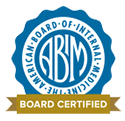I am writing this blog due to the recent chaos caused by Hurricane Ian. Unfortunately, there will always be natural disasters such as hurricanes, tornados, floods, earthquakes, blizzards, and noreasters. There are some aspects I wish to address:
- If there is an advanced warning such as with Hurricane Ian, it is extremely important to follow guidance from local officials regarding evacuations. Hurricanes, and the weather in general, are extremely unpredictable and can change course at a moment’s notice. Closely monitoring the weather reports can alert you to such changes and prepare you for what to expect.
- If there is even a remote chance of danger, don’t play the odds. Find safety elsewhere whether it is with family or friends. Get out of the danger area immediately. Know where emergency shelters are ahead of time.
- With regards to preparation for storms, make sure you pack a “Go Bag” containing essentials such as food, water, dry clothes, essential electronics, associated cables, chargers and batteries, and medications sealed in a plastic bag to avoid water exposure. This allows you to leave at a moment’s notice without scrambling around and looking for items that waste precious time and increase stress levels.
- If you intend to stay, make sure all electronics are charged beforehand and keep batteries and chargers on hand. If you have a generator, make sure it is serviced and ready to go. Do a test run and make sure you have enough fuel (gasoline and/or propane) to last for several days if possible. When using generators, make sure you do not use the generator inside to avoid carbon monoxide poisoning and that you have adequate extension cords and power stations laid out beforehand.
- Check in on family both before, during, and after the storm, particularly the vulnerable (elderly and ill as well as pets) to make sure they are prepared as well, including making sure they have their medications on hand and are protected from the elements in water-tight containers.
- Post-disaster, there are various issues that arise. Most importantly, rescuing those who are stranded is a priority. With Hurricane Ian, first responders, the Army Corps of Engineers, the National Guard, and assistance groups such as the Red Cross, and Samaritan’s Purse were all ready to provide assistance in the form of rescue, shelter, clothing, and food and water.
When there is flooding, various health issues are prevalent due to sanitary compromise. Specifically, flood waters are often contaminated by sewage and debris. As a result, some of the most common health issues are skin infections, gastrointestinal infections, and respiratory issues (such as pneumonia and asthma exacerbations) among others.
Finally, in the aftermath, in addition to taking care of the physical wellness of those affected, it is important to prioritize emotional wellness as PTSD and anxiety are common.
Those are just some tips to keep in mind so that the next time there is a disaster, you can increase your chances of avoiding some “avoidable” issues. There is a military saying I was always fond of, and it is “Luck favors the prepared mind.” It refers to proactively taking steps to keep yourself as ready as possible for when things take a turn for the worst.

